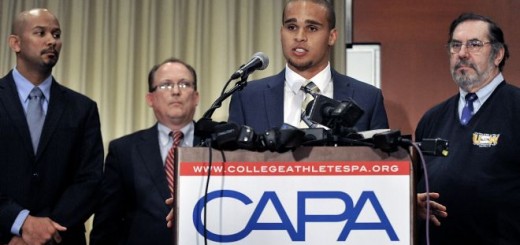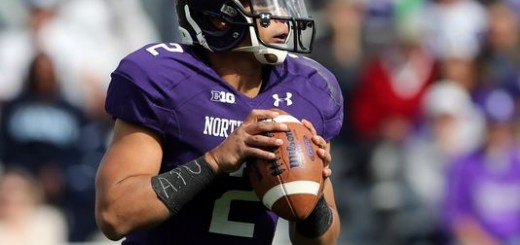Tweet
The biggest news yesterday in the sports law world was of course that Northwestern’s Kain Colter is seeking to unionize his fellow members of the Wildcat football team. While this is certainly a big deal, it is a long way from coming to fruition and is fraught with obstacles that must be overcome. Moreover, unionizing college athletes will also open a pandora’s box of secondary issues that will have to be addressed. Tax-exemptions, Title-IX, the O’Bannon antitrust suit, and a slew of other issues will have to be addressed if the landscape of collegiate-athletics is overhauled by unionizing the players.
One thing that is certain is there will be plenty to discuss and debate over the coming weeks, months, and years. We will of course provide updates and opinions along the way.
In the meantime, to get you started, two of our writers give their takes on yesterday’s big news. Jeremy, writes about the difficulties in classifying student-athletes as employees, and Sean writes about the potential pitfalls and consequences if indeed the student-athletes are able to unionize.
Read Jeremy’s article here: All Courts United: Why, Despite Kain Colter’s Best Efforts, It Is Unlikely He Will Succeed In Unionizing College Athletes
Read Sean’s article here: Down the Rabbit Hole: The Unlikely and Fantastical Theory of a College Sports Union




John Calipari’s recent thoughts on the NCAA http://espn.go.com/mens-college-basketball/story/_/id/10760355/kentucky-wildcats-coach-john-calipari-likens-ncaa-dying-soviet-union-new-book
Is the NCAA in need of reform? Absolutely. And, I think people who work in college athletics (including the NCAA) would agree, and they are working to reform the system. But, I disagree that the NCAA is going the way of the Dinosaur or that it should be overhauled.
Calipari’s proposals reflect a similar notion. It is not about a free market or pay-for-play or any of the extremist ideas. It is about making the lives of these athletes better, making things a little more fair. Stipends, insurance, guaranteed scholarships are all small reforms (by comparison) that go a long way. Problem is, just like Congress, getting hundreds of competing interests to come together is not always easy, no matter how well intentioned the voters may be.